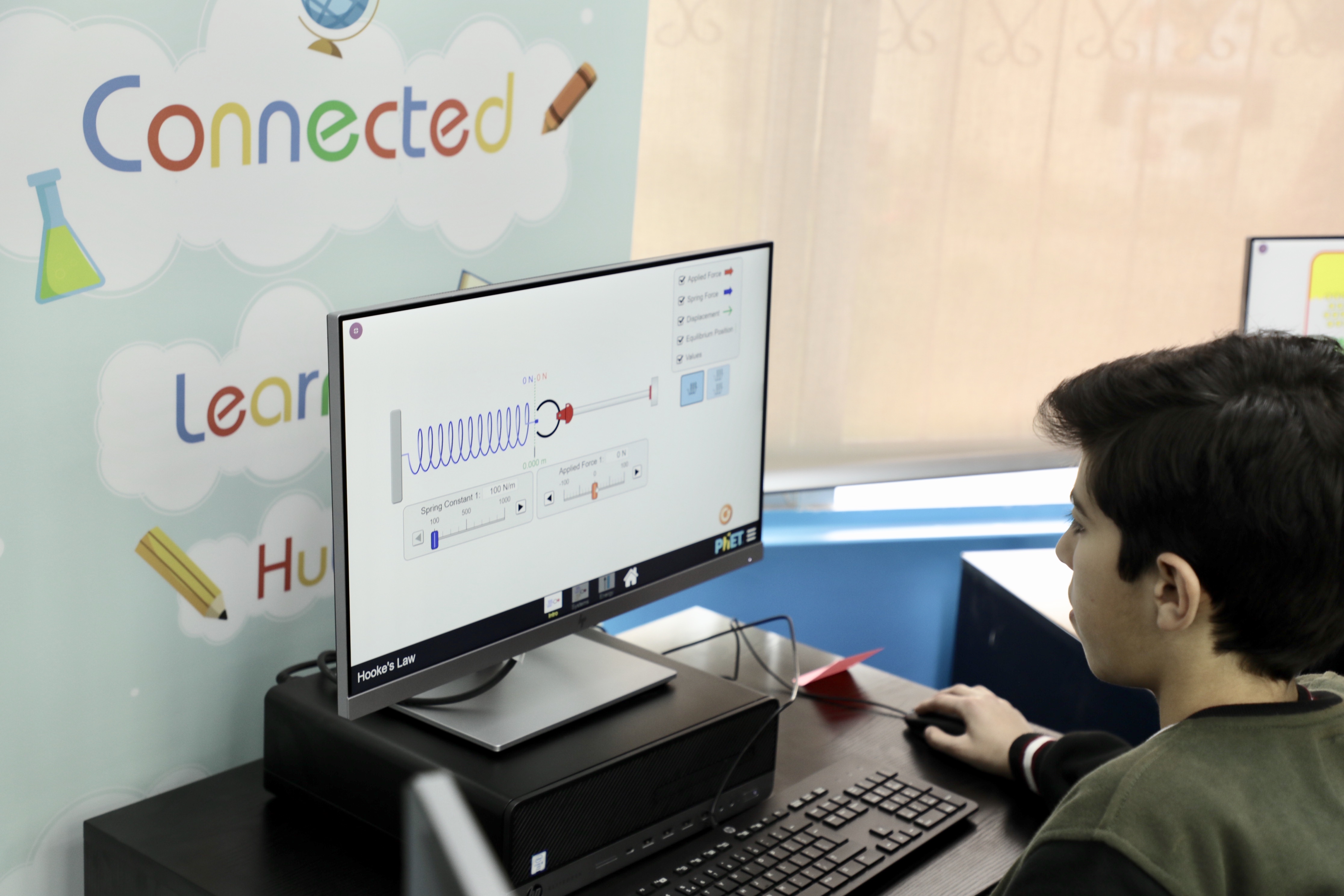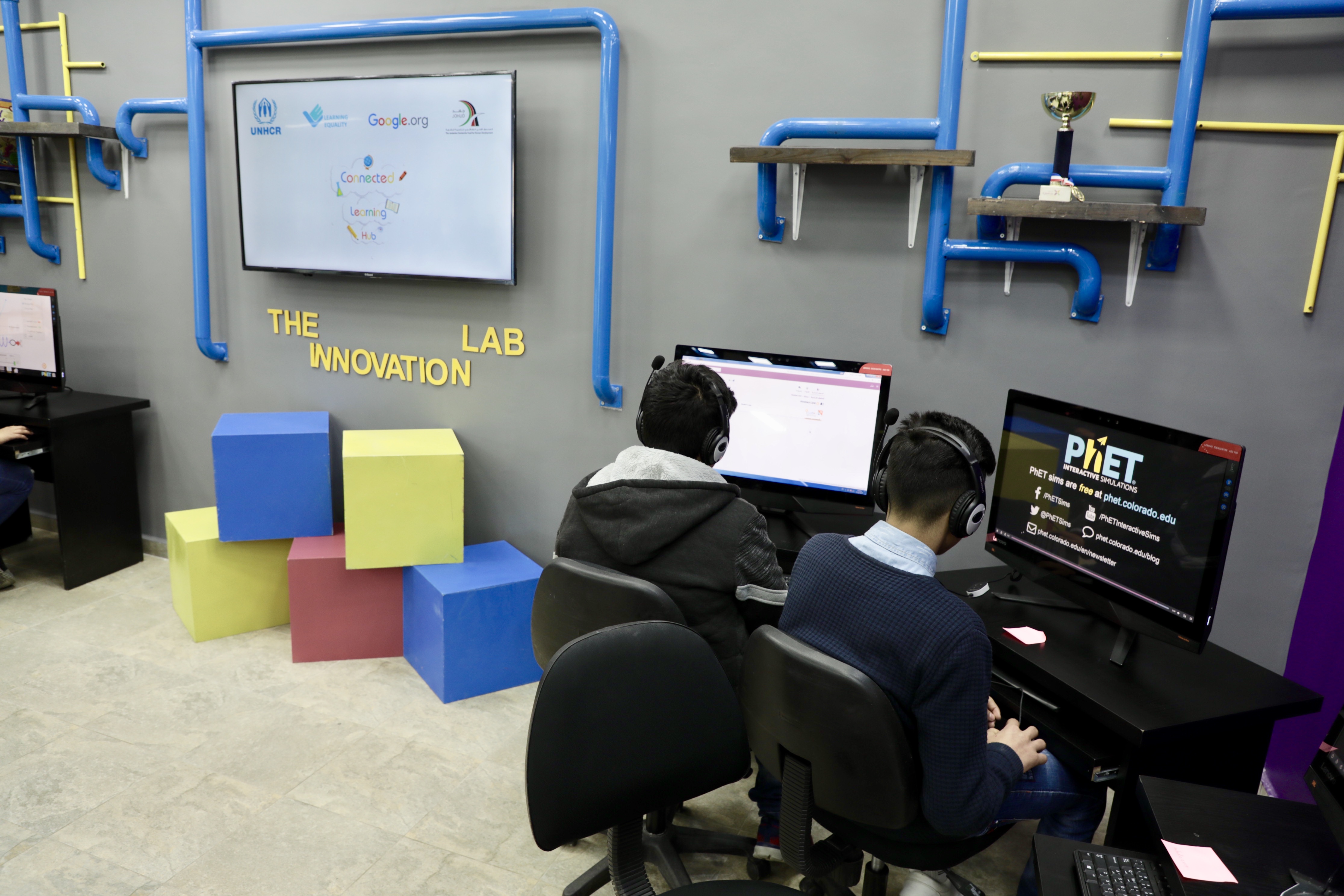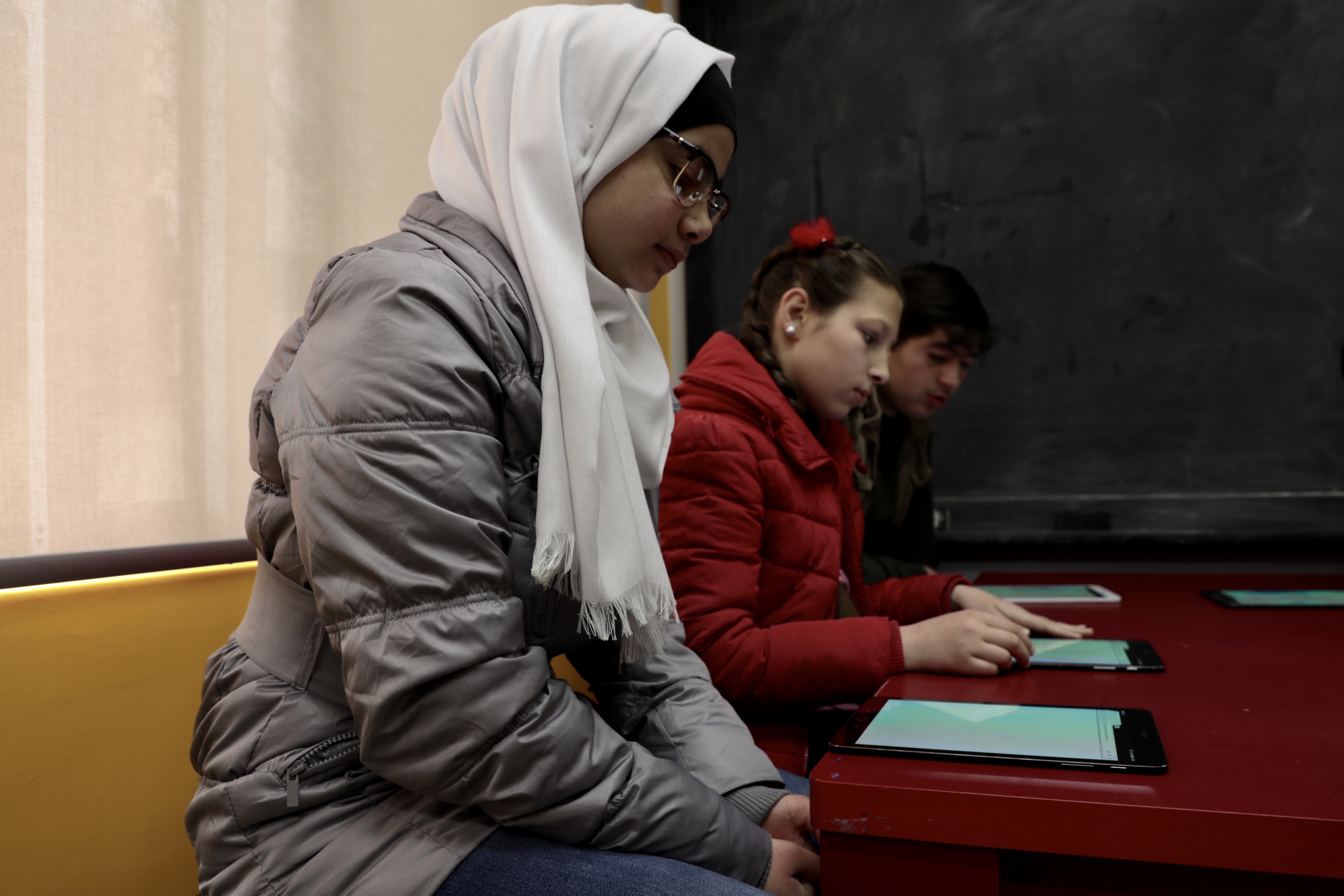As part of its education strategy to advance inclusive and equitable education for all in Jordan, UNHCR, in collaboration with Learning Equality and with grant funding from Google.org, is launching a network of 10 innovative learning hubs in community centers throughout the Kingdom.

Mixing traditional face to face and e-learning, the Learning Hubs will offer advanced education courses for both refugee youth and Jordanian nationals aged 13 to 17 years old. From Mafraq to Maan, these hubs will provide a resource for youth to access additional learning support focused on subjects such as STEM, Arabic, English, life skills and coding.
Based on the Kolibri ecosystem, which brings online learning to offline communities, and encompasses an educational platform, as well as a content library containing with learning materials in dozens of languages, each learning hub will be equipped with laptops and tablets where approximately 40 students daily will be able to access and interact with digital learning resources. Especially in rural areas and refugee camps where internet access is limited, Kolibri provides a valuable means for students to continue their learning and contains a wealth of digital materials and information, such as lesson plans, assessment tools, books and games catering for a wide range of ages and abilities.

In addition, as an open-source platform, Kolibri allows its users to create locally relevant customized educational content. In this regard, UNHCR is currently working with Learning Equality to align content in the Kolibri platform to the national curriculum in Jordan in order to enable refugee students to integrate their learning at the hubs with what they are studying within the formal educational system.
“Access to technology, combined with quality digital resources and in-person support, can change the trajectory of a young person’s education. We’re excited to support UNHCR and Learning Equality’s efforts to make sure those benefits reach students of all backgrounds in Jordan,” said Nick Cain, Manager at Google.org.

“These Learning Hubs present an important opportunity to open up access to a wealth of digital learning materials for refugee and Jordanian youth. Together with Google.org and UNHCR, we’re excited to see our platform Kolibri enabling learners to continue their education within the supportive community created around the hubs,” said Learning Equality Executive Director Jamie Alexandre.
Situated at community centers run by UNHCR local partners, JOHUD, IRD and CARE, the Connected Learning Hubs will give students, as well as their family members, the opportunity to study at their own pace, catering to a variety of learning styles and abilities in a protective environment. Over the past months, 43 coaches and coordinators, many of them refugees themselves, have undergone training to ensure that they are best able to facilitate the needs of the students and a key objective of the Learning Hubs will be to encourage both girls’ education and those with special needs.

Commenting on the launch of the hubs, UNHCR Representative, Stefano Severe, said:
“Strengthening the quality of education and availability of educational resources for refugees is a key part of our strategy here at UNHCR Jordan to provide inclusive and equitable education for all refugees regardless of their nationality, background or status. This collaboration with Google.org and Learning Equality along with the launch of the learning hubs will be an important way to ensure that refugee youth are able to get more educational support at a community level through an innovative and engaging manner.”
END
For more information please contact:
The UN Refugee Agency (UNHCR) Jordan Office in Amman
ENG – Lilly Carlisle, External Relations Officer, carlisle@unhcr.org, +962 79 9649430
ARA – Mohammad Hawari, Senior External Relations Associate, hawari@unhcr.org, +962 895 6781
Share on Facebook Share on Twitter